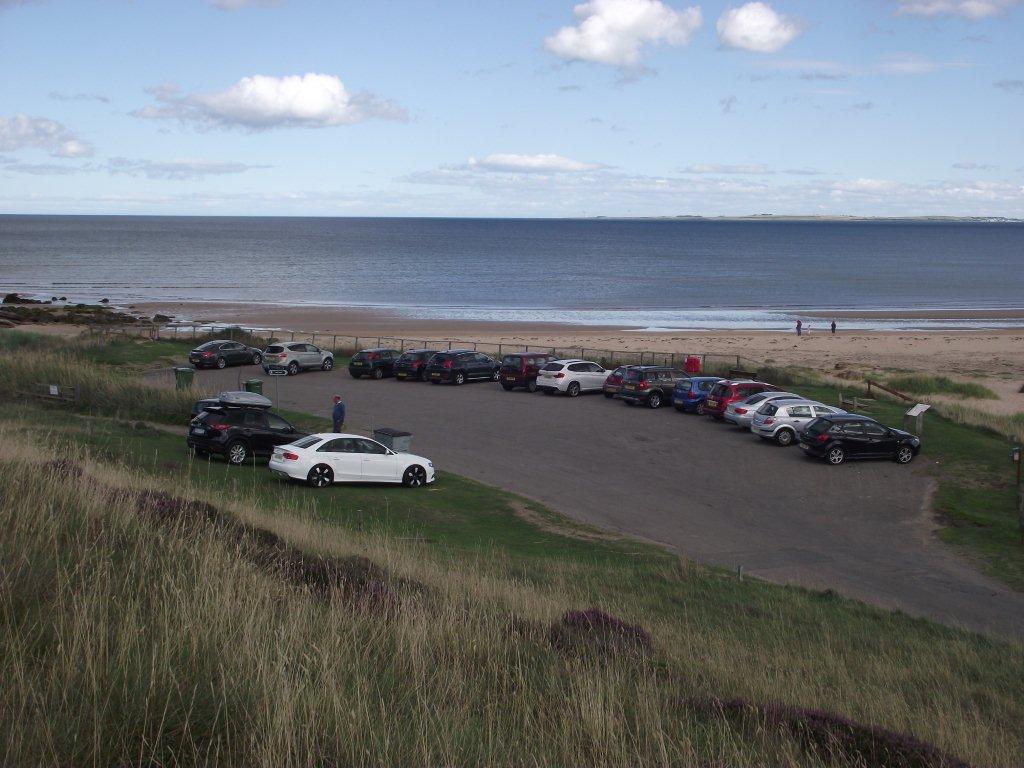There have been lot of talk recently about the “problem” of motorhomes in Dornoch and Durness, reported in the Northern Times here and here.
Is there really a problem and if so, what is it?

Credit: Andy Strangeway
As I write this blog, I am in my motorhome in the Highlands, having recently spent one night outside Durness. Usually, I travel to France and the rest of Europe…it is easier, cheaper, usually more fun and usually better weather. But this year, I wanted to see the beautiful highlands and I was not disappointed – it is a fabulous place. One of the things that struck me was just how many motorhomes visit Scotland. It seemed to me that nearly a half of all vehicles on the road were visibly tourist related. Nearly a third were motorhomes, of which nearly half bore foreign registration plates. In England, a motorhome is still a relatively unusual sight on the roads and a foreign one is positively rare.
In the rest of Europe, the motorhome culture is very different to the UK. In Europe, there is an acknowledgement that motorhomes are used in very different ways to caravans. A large percentage of motorhomers never use campsites. Not ever. They don’t need to. And having spent three of the last four years motorhoming in Europe, I can see why, so now I am a motorhomer who (almost) never uses campsites. All I look for is somewhere to park. Once a week, I need tap water and somewhere to empty my toilet waste, but apart from that, all I need is somewhere to park my self-contained motorhome. Campsites in Scotland can charge up £20 to park a motorhome overnight, more if you have family with you, but what exactly are you getting for our money? Not a lot, is the answer, for many motorhomers.
You see, most motorhomes are self-contained. Most of the time, they only need somewhere to park. They don’t need or want all the other things that a campsite provides and don’t really see why they should be forced to pay for them. They have a point.
So, back to the problem…the increasing numbers of motorhomes using laybys and carparks is a problem and it is this:- the tourist industry in the UK is not meeting the needs of motorhomes. I will say that again: the tourist industry in the UK is not meeting the needs of motorhomes.
In Europe, motorhomes are well catered for using Aires de Services or Stellenplatzen, collectively known as Motorhome Stopovers. Wikipedia describes them perfectly:-
“These stopovers differ from campsites in that they are usually intended for a very short-term usage—usually one or two days—thus they provide very limited space for parking and limited facilities or at times no service at all. Some stopovers may provides services like campsites but these places generally will not provide much space around the vehicles as most campsites do. In most cases these places are usually located at the center of or at the edge of a town or a village and are convenient for visiting such places and generally do not have a management facility like a campsite. In addition, the majority of these place are free of charge”
So now we can see that the real problem is not the number of motorhomes as such, but that they are not used to being exploited for unwanted services. Motorhomers are thought to spend £30+ per day…if Scotland tourism wants to keep that, then it needs to raise its game, because right now, we don’t feel very welcome.
Andy Strangeway has been battling for the last two years and has a lot to say about it on his blog.
Here at the Motorhome Touring Association, we believe that local councils have a responsibility to satisfy the needs and wishes of their residents and to provide an infrastructure which benefits all local traders, rather than a select few. Local councils should be asking for their views, all of them, not just campsite owners. And, in the context of motorhomes, they should be talking to motorhomers because if they are not made to feel unwelcome, they will take their money somwhere else. The Motorhome Touring Association we can help local authorities understand the needs and expectations of modern motorhomers in ways that benefit everyone and to match them to local conditions.